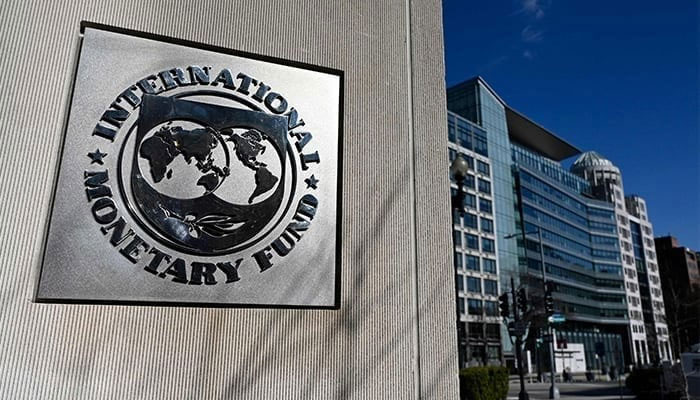Deal or no deal?
LAHORE: The International Monetary Fund (IMF) is likely to review the Pakistan government’s recent subsidy initiatives with a critical eye.
An IMF agreement is necessary for Pakistan to stabilize its economy, implement crucial reforms, and restore confidence among international investors and creditors. While the conditions attached to IMF assistance can be challenging, they are often viewed as essential for long-term economic stability and growth.
The finance minister has expressed optimism about the IMF Board’s approval of Pakistan’s programme in September. This optimism follows the revelation that a staff report from the IMF was not included in the agenda for the August 28 meeting.
It appears the IMF Board is closely examining Pakistan’s adherence to its commitments.Notably, the deadline for the privatization of Pakistan International Airlines (PIA) has passed without significant progress, and recent subsidies on electricity could further complicate matters.
Pakistan is grappling with a balance of payments crisis, marked by inadequate foreign exchange reserves to meet import and external debt obligations. An IMF agreement is vital for financial assistance to stabilize the economy and avert a default on international payments. With a high level of external debt, IMF support is crucial for managing debt repayments and alleviating immediate pressure on reserves.
An IMF agreement often signals a commitment to reforms and economic stabilization, which can restore investor confidence, attract foreign investment, and encourage additional support from other multilateral and bilateral lenders.
With IMF backing, Pakistan would have better access to global financial markets, improved loan terms, and increased funding opportunities from institutions like the World Bank and the Asian Development Bank.
The IMF acknowledges the necessity of social protection, evidenced by its agreement to increase funding for the Benazir Income Support Programme despite the government’s fiscal constraints.
However, the IMF’s stance on repeated subsidies, particularly those not included in the initial agreement, may lead to a cautious or critical response. The IMF might require further adjustments to ensure that the overall economic strategy remains effective.
Pakistan’s energy sector, burdened by chronic issues such as circular debt, is a major financial drain. IMF programmes typically include reforms to enhance sector efficiency and financial viability.
The recent decision to subsidize electricity rates, especially after reducing the development budget to accommodate prior subsidies, could be seen as counterproductive to IMF objectives. Such actions might exacerbate fiscal deficits and detract from essential development spending.
The IMF may insist on offsetting these subsidies with equivalent revenue measures or expenditure cuts elsewhere, and potentially delay fund disbursement until there is clearer alignment between the agreed-upon reforms and government actions.
-
 Maria Shriver Shares Heartbreaking Reminder After Eric Dane's Death: 'Next Week Isn't Guaranteed'
Maria Shriver Shares Heartbreaking Reminder After Eric Dane's Death: 'Next Week Isn't Guaranteed' -
 Andrew Mountbatten Windsor Gets New Moniker After Losing ‘Prince’ Title
Andrew Mountbatten Windsor Gets New Moniker After Losing ‘Prince’ Title -
 Jack Black Shares Unseen Moments With Tanya Haden: 'My Love'
Jack Black Shares Unseen Moments With Tanya Haden: 'My Love' -
 Shamed Andrew Made Taxpayers Fund Personal ‘massages’
Shamed Andrew Made Taxpayers Fund Personal ‘massages’ -
 What Could Be Nick Reiner's Fate After Pleading Not Guilty Parents’ Murder Case?
What Could Be Nick Reiner's Fate After Pleading Not Guilty Parents’ Murder Case? -
 Princess Kate Talks About 'hard Conversations' With Kids Amid Andrew Drama
Princess Kate Talks About 'hard Conversations' With Kids Amid Andrew Drama -
 Prince William Mocked For Being ‘most Reluctant’ King-in-waiting
Prince William Mocked For Being ‘most Reluctant’ King-in-waiting -
 Prince William Makes Rare Admission After Andrew Arrest
Prince William Makes Rare Admission After Andrew Arrest -
 ‘Got A Lot Of People Gunning For Me’: Trump Makes First Comments On Mar-a-Lago Intruder
‘Got A Lot Of People Gunning For Me’: Trump Makes First Comments On Mar-a-Lago Intruder -
 What Countries Have A Say In Andrew Removal From Line Of Succession?
What Countries Have A Say In Andrew Removal From Line Of Succession? -
 How Did Luci4 Die? Police Probes 'BodyPartz' Sudden 'suspicious' Death
How Did Luci4 Die? Police Probes 'BodyPartz' Sudden 'suspicious' Death -
 King Charles Criticized By Princess Anne Over Andrew Drama
King Charles Criticized By Princess Anne Over Andrew Drama -
 Hailee Steinfeld Details Preparations Ahead Of Welcoming First Kid With Josh Allen
Hailee Steinfeld Details Preparations Ahead Of Welcoming First Kid With Josh Allen -
 Shocking Details Revealed About Gunman 'Austin Tucker' Shot Dead At Trump’s Resort 'Mar-a-Lago'
Shocking Details Revealed About Gunman 'Austin Tucker' Shot Dead At Trump’s Resort 'Mar-a-Lago' -
 Queen Camilla Meets Gisèle Pelicot, Sends Powerful Message To Victims As Andrew's Scandal Deepens
Queen Camilla Meets Gisèle Pelicot, Sends Powerful Message To Victims As Andrew's Scandal Deepens -
 Cancer-stricken King Charles At Breaking Point?
Cancer-stricken King Charles At Breaking Point?




